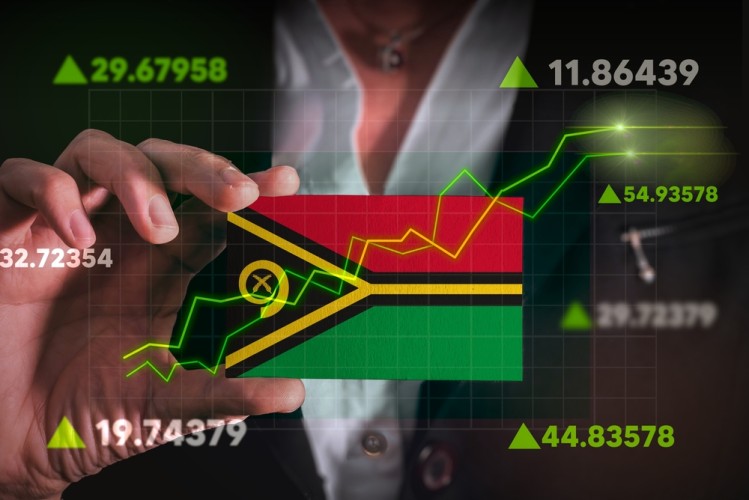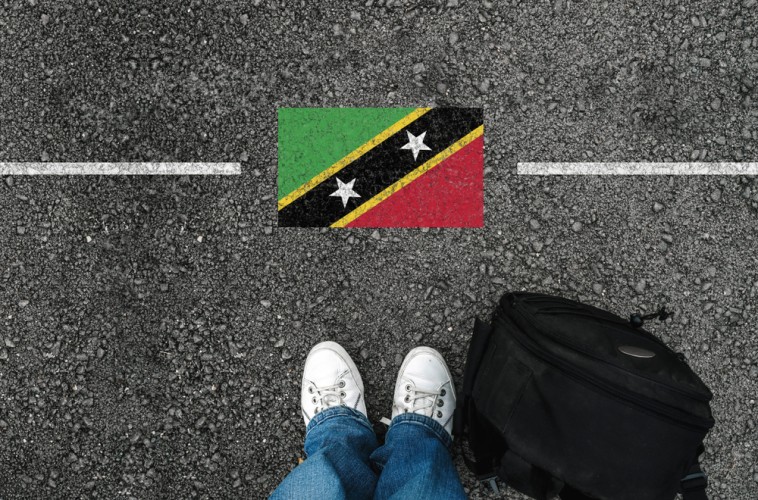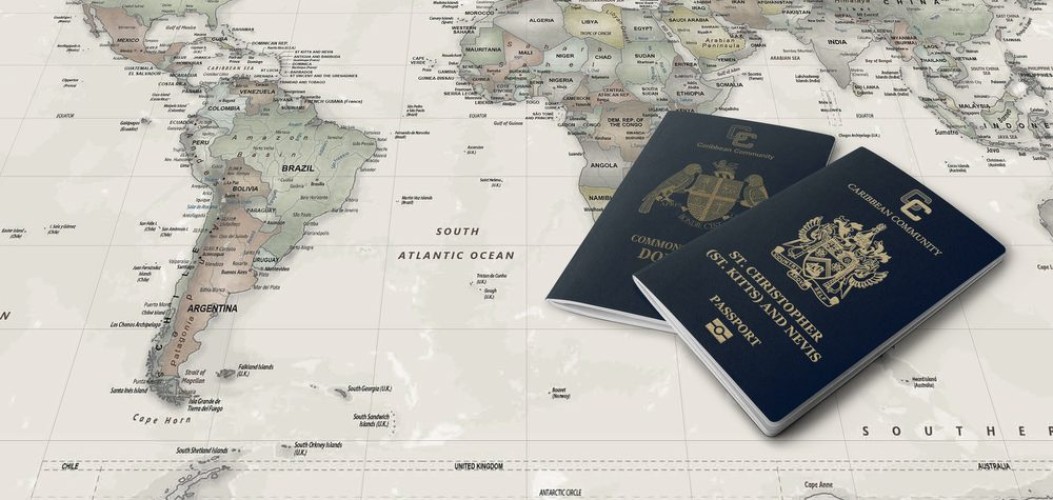Grenada’s financial landscape blends stability with modern services, catering to locals, expatriates, and global investors. Governed by robust frameworks like the Eastern Caribbean Central Bank (ECCB) and the Grenada Authority for the Regulation of Financial Institutions (GARFIN), the banking sector prioritizes security and innovation. The Eastern Caribbean Dollar (XCD), pegged to the USD at 2.70:1, ensures monetary predictability—a cornerstone for international clients. Recent regulatory shifts, such as the pending Data Protection Act and the Banking (Amendment) Bill, further strengthen consumer rights and data privacy, positioning Grenada as a forward-thinking jurisdiction.
Grenada’s Banking System
The Grenada banking system operates under a dual regulatory model. The ECCB oversees monetary policy and currency stability across the Eastern Caribbean Currency Union (ECCU), while GARFIN supervises non-bank entities like credit unions and investment firms. This structure ensures rigorous compliance with anti-money laundering (AML) protocols and international banking standards. Banks in Grenada serve diverse clients—from retirees to multinational corporations—with an emphasis on transparency. Recent reforms mandate strict codes of conduct for market integrity, consumer data protection, and ethical debt recovery, enforceable via penalties up to $10,000.
The system supports multi-currency accounts (USD, EUR, GBP), facilitating global trade and investment. Physical access is convenient, with major banks maintaining branches in St. George’s and other parishes, though digital adoption is rising rapidly.
List of Major Banks Operating in Grenada
The Grenada banks list features 18 institutions, but a few dominate with comprehensive services and regional credibility. Below are the best banks in Grenada based on reach, stability, and specialization:
- Republic Bank (Grenada) Limited. Acquired Scotiabank’s operations in 2021, now operating six branches and 12 ATMs nationwide. It leads in commercial lending and digital innovation, recently hosting seminars for small businesses and mortgage expos.
- Grenada Co-operative Bank Limited. The only indigenous bank, proudly Grenadian-owned since 1932. With six branches, it emphasizes community development through climate-resilient loans and cultural sponsorships like the Commancheros Steel Orchestra.
- ACB Grenada Bank. Offers advanced online platforms and competitive corporate account fees. Its three branches provide tailored services for international investors, including USD savings accounts.
- Grenada Development Bank. Focuses on socioeconomic growth via loans for tourism, agriculture, and housing. Headquartered in St. George’s, its revised hours (8 AM–2 PM weekdays) accommodate local entrepreneurs.
Other notable players include CIBC Caribbean and RBC Royal Bank, which offer wealth management and cross-border financial solutions. All top institutions are members of the Caribbean Association of Banks, ensuring adherence to regional best practices.
Services Offered by Grenadian Banks
Banks in Grenada deliver versatile services for individuals and businesses, blending traditional and digital solutions. Personal banking features:
- Savings, checking, and term deposits. Minimum opening balances range from EC$100 to EC$5,000. Multi-currency options (USD, EUR, GBP) help hedge against exchange fluctuations.
- Credit Mortgages, personal loans, and credit cards. Grenada Co-operative Bank, for instance, offers 100% financing for climate-resilient homes.
- Online Management. Mobile apps enable balance checks, utility bill payments, and international transfers. Republic Bank’s platform supports 24/7 transactions, while ACB provides real-time currency conversion.
For businesses, services include:
- Corporate accounts. Required for registered entities, with monthly fees from EC$14.95 (USD) at Republic Bank. Documentation includes incorporation certificates and director identification.
- Trade Finance. Letters of credit, guarantees, and import/export financing through international networks like CIBC.
- Escrow Secure property transactions, where funds are held until contractual obligations are met—ideal for real estate investors.
Non-residents face stricter requirements, such as proof of income, a passport, and a bank reference letter. However, CBI citizens expedite account opening by leveraging their Grenada status. Fees vary: debit card annual charges range from EC$24.56 (Co-operative) to $103.50 (Republic), while international transfers cost up to EC$86.96 per transaction. Remote account opening is possible but requires notarized documents. Banks like ACB Grenada accept digital submissions, though some insist on in-branch verification for non-residents.
How to Open a Bank Account in Grenada
Opening a bank account in Grenada involves a structured yet accessible process for both residents and international clients. The procedure typically requires 10–14 days and can be initiated remotely or in person at local branches. For individuals, core documentation includes a valid passport, proof of address (such as a utility bill), and income verification (employment contract or bank statements for self-employed persons). Non-residents face additional steps, including a bank reference letter and Tax Identification Number (TIN) from their home country.
Legal entities must submit incorporation certificates, director/shareholder details, and a Certificate of Good Standing. Crucially, documents not in English require notarized translations and apostille certification to meet Grenada’s compliance standards. Remote account opening is widely supported. For example, Republic Bank allows digital submissions via its online portal, followed by couriered notarized forms. After approval, clients fund the account (minimum EC$100–EC$5,000 depending on the bank) and gain access to online platforms. Notably, Citizenship by Investment (CBI) holders expedite the process by leveraging their Grenada status, often bypassing enhanced due diligence. While physical presence is optional, some institutions like Grenada Co-operative Bank mandate in-branch verification for certain corporate accounts or high-risk jurisdictions.
Banking Options for Non-Residents and Foreigners
Grenada’s banking system actively welcomes international clients, though non-residents encounter distinct requirements and fee structures. Foreign individuals and businesses must demonstrate stable income sources, provide comprehensive financial histories, and disclose beneficiary information. For instance, ACB Grenada Bank mandates six months of account statements and source-of-wealth documentation for offshore accounts. Corporate entities face heightened scrutiny: trusts must submit declarations of intent, while foundations need audited activity reports. Minimum deposits also vary, with non-resident savings accounts often requiring EC$5,000–EC$10,000.
Citizenship by Investment (CBI) significantly streamlines access. Investors contributing $150,000+ to Grenada’s National Transformation Fund or purchasing approved real estate gain passport privileges, which reduce documentation burdens. CBI holders enjoy:
- Exemption from heightened due diligence checks.
- Multi-currency accounts (USD, EUR, GBP) without monthly volume restrictions.
- Lower international transfer fees, such as ACB’s $51.75 EC outgoing wire cost versus $86.96 EC for standard non-residents.
- Priority processing, with account activation in 5–7 business days.
Despite these advantages, limitations persist. Non-residents cannot access state-subsidized agricultural loans from the Grenada Development Bank or join credit unions like Grenville Co-operative. Additionally, some digital services, such as Republic Bank’s “My Payment with Friends” peer transfers, require local phone verification.
Online and Mobile Banking in Grenada
Digital transformation has revolutionized Grenada’s banking landscape, with all major institutions offering robust online platforms. Services span real-time account monitoring, cross-border transfers, bill payments, and cardless ATM withdrawals. Grenada Co-operative Bank’s app, compatible with iOS and Android, features biometric login, customizable alerts, and financial calculators. Similarly, Republic Bank’s RepublicMobile enables “Collections” for group fundraising and instant OECS-wide transfers. Security protocols adhere to international standards: 128-bit SSL encryption, zero data storage on devices, and automatic session termination upon app closure.
While basic functions like balance checks and utility payments are universally accessible, advanced features face restrictions. International wire requests via mobile apps incur higher fees than in-branch transactions—$120 USD versus $94.50 USD at Republic Bank—and require manual operator approval. Additionally, credit card applications or loan restructuring typically necessitate physical documentation submissions, highlighting lingering hybrid banking realities.
Fees, Charges, and Account Maintenance Costs
Understanding fee structures is essential for cost-effective banking in Grenada. Accounts typically incur monthly maintenance charges, transaction-based fees, and penalties for minimum balance violations. Personal checking accounts range from EC$2.50 (Grenada Co-operative) to EC$21.74 (Republic Bank) monthly, while corporate variants escalate to EC$115+. Debit card annual fees vary sharply: ACB offers complimentary cards, whereas Republic Bank charges EC$103.50. Credit cards entail steeper costs—up to EC$115 annually at Grenada Co-operative Bank, plus 16% interest on outstanding balances.
International transfers represent a major cost differentiator. Incoming wires cost $23–25 USD across institutions, but outgoing transfers fluctuate:
- Caribbean destinations: $55–65 EC;
- United States: $100–120 USD;
- Global transfers beyond North America: $120 USD + correspondent bank
Non-residents should also budget for compliance-related fees. Bank reference letters cost ~$50 USD, while balance certifications for visa applications range from $39.10–56.35 EC. Notably, dormant accounts (inactive for 12+ months) incur penalties up to $10 EC monthly, and early account closures within 180 days trigger $30–50 EC administration charges.
Digital services provide partial relief. Online bill payments are often free, and peer-to-peer transfers via apps like RepublicMobile avoid fees. However, cash handling incurs surcharges: bulk deposits over $10,000 EC attract 0.15% fees at Grenada Co-operative Bank, while ATM withdrawals at rival networks cost $9.05 EC per transaction. For cost optimization, clients should prioritize bundled services—such as ACB’s premium packages with discounted drafts—and maintain minimum balances to avoid violation penalties.
FAQ
Residents require a valid passport, proof of address (utility bill or lease), and income verification. Non-residents additionally need a bank reference letter, Tax Identification Number (TIN), and source-of-wealth documentation. Corporate clients submit incorporation certificates and director IDs.
No. State-subsidized loans (e.g., Grenada Development Bank programs) and credit unions are restricted to citizens. Some digital features like instant peer transfers require local phone verification.
Republic Bank, ACB Grenada Bank, and Grenada Co-operative Bank provide USD, EUR, and GBP accounts, facilitating international transactions and currency hedging.
No fully digital-only banks exist. While apps enable most transactions (online payments, balance checks), services like loan applications or complex disputes require in-branch visits.
Outgoing transfers cost $55–120 USD (destination-dependent), plus correspondent bank fees ($15–30 USD). Incoming wires incur fixed charges of $23–25 USD.
Standard processing is 10–14 days. Citizenship by Investment holders expedite to 5–7 days. Delays occur if documents need notarization or apostille certification.
Yes, except for state-subsidized programs. Banks require collateral (property/assets) and 2+ years of audited financial statements from foreign applicants.
For basic functions (balance checks, bill payments), no. SMS-based authentication and peer-transfer apps (e.g., RepublicMobile) mandate Grenadian numbers.
Monthly penalties apply ($10–30 EC). Persistent shortfalls for 90+ days may trigger account downgrades or closure. Restoring the balance waives future fees.






